
politics & policy
Age checks for porn: A first step, not a full stop

James Mildred
Date posted: 25 Aug 2025
This summer the UK took a huge step forward in making the internet safer for children. At the heart of the Online Safety Act are the age verification provisions.
From the end of July, all social media platforms and commercial porn sites had to put in place robust and effective age gates to stop under-18s from accessing pornographic content. Platforms who fail to comply will be investigated and could face fines or court orders to stop them streaming in the UK.

EFAC: successful re-launch completed
The Revd Richard Crocker
Date posted: 1 Feb 2019
The Evangelical Fellowship in the Anglican Communion (EFAC) held the second part of its 2018 international Council meeting in Nairobi in October.
The successful establishment of the Council heralds EFAC’s reemergence as a powerful international Anglican ministry. EFAC’s vision is to encourage and develop biblically faithful fellowship, teaching and mission, as well as to resource church leaders throughout the Anglican world. There were 22 participants, including those from existing, reviving (four) or developing EFAC national Chapters. Five continents were represented and 11 participants were bishops.

Fight or flight?

David Baker
Date posted: 1 Mar 2019
There are two schools of thought about the
way forward for evangelicals in the Church
of England at the moment.
The first school of thought is what might
be called the ‘into the lifeboats’ approach.
This ‘boats’ view believes the CofE is lost.
Those who think otherwise, it is implied, are
wasting their time. People should be planning
to leave – perhaps to the Anglican Mission
in England (AMiE) or the Free Church of
England; furthermore, to put any energy into
other strategies is merely to repeat the same
failed actions of the last 50 years, it is argued.
If we keep on with the same tactics we will
merely replicate the same results.
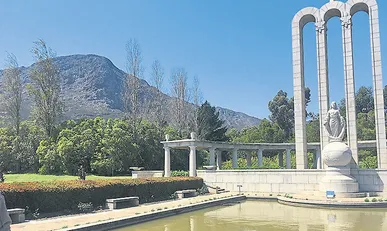
Towards understanding South Africa
Chris Sugden and Gavin Mitchell
Date posted: 1 Dec 2018
Cape Town South Africa is a bewildering mix of fabulously beautiful landscapes and vineyards which provide a resource for a booming tourist industry, within a few miles of vast stretches of shanty towns where people attracted by its stable economy come to seek well-being for themselves and their families.
The irony is that this ‘rainbow nation’ of many different languages, races and cultures did not start off as nation at all. Cape Town was only intended from the 16th to the 19th centuries to be a refuelling port for food and water for sailing ships of the merchant companies of Portugal, Holland, France and, finally, England en route to their trading empires in the East Indies and India.
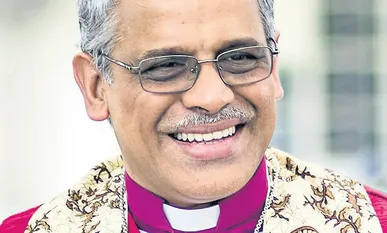
EFAC reorganises & renews its mission
Chris Sugden
Date posted: 1 Feb 2018
At a meeting of Trustees in October, the
Evangelical Fellowship
in
the Anglican
Communion (EFAC) restated its vision and
appointed new leadership.
EFAC’s purpose remains to encourage and
develop biblically
faithful
fellowship and
mission throughout the Anglican world. It
is adjusting its goals and strategies to best
serve its constituency, which has seen tremendous change since John Stott founded
the Fellowship in 1961.
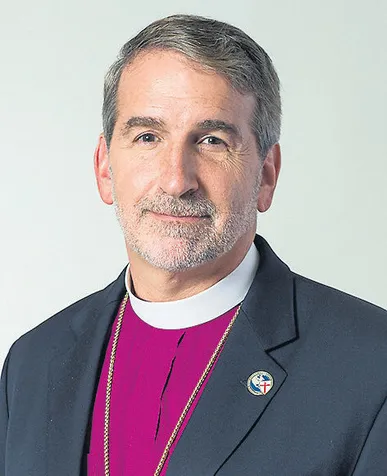
20/20 vision for 2020?

David Baker
Date posted: 1 Jan 2019
As we look back on 2018 and forward to 2019 – and beyond – where are Anglican evangelicals in relation to the wider CofE ?
Here are some things I think we can be thankful for and encouraged by from 2018.
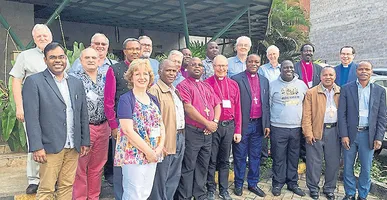
Holding on to power
Vinay Samuel and Chris Sugden
Date posted: 1 Jan 2019
The Evangelical Fellowship in the Anglican Communion (EFAC) has re-emerged after being somewhat dormant over the last decade.
That it is re-emerging with global participation and recognition among clergy and lay leaders in national groups indicates where apostolic succession truly lies – in the faith deposit entrusted to the people of God. For the news that EFAC was starting up again was met with instant brand recognition and welcome from evangelical Anglicans around the world.

Iraq: believers survive and thrive
Paul Perkin
Date posted: 1 Nov 2018
‘You can say you are not a man or a woman, you can say you are not a Kurd, but you cannot say you are not a Muslim; it’s in your DNA.’
This is according to a Muslim-background believer in Jesus (MBB), who indeed told his family he was now a believer in Isa [Jesus]. He came to Christ through an atheist newspaper telling the accounts of people who had turned from Islam to Jesus (the paper held no candle for any religion but was vaguely interested in those who converted from one to another!)
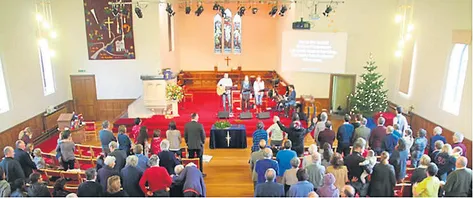
Scottish Anglican Network: contending & learning
The Revd David McCarthy
Date posted: 1 Oct 2018
St. Thomas’ Church, Edinburgh, has a long history as an evangelical congregation.
It was founded in 1844 as an Independent Anglican Church, following the introduction of the Oxford Movement to the Scottish Episcopal Church (SEC). It gradually grew closer to SEC from the 1940s onward. Rectors have included George Duncan, Gordon Bridger (later of Oak Hill College), John Wesson (later of Trinity College, Bristol) and Philip Hacking (later of Christ Church Fulwood, Sheffield).
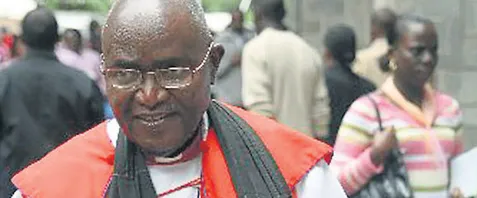
Why GAFCON?
Chris Sugden and Vinay Samuel
Date posted: 1 Aug 2018
‘Success has many fathers, but failure is an orphan.’
The successful conclusion of GAFCON 2018, ten years after its formal beginnings as a global Anglican movement that had its roots in, among others, the Lambeth Conference of 1988 of which Archbishop Manasses Kuria of Kenya said: ‘This was our Lambeth’ and (then Bishop) David Gitari of Kenya said: ‘Anyone who wants a resolution passed in 1998 will have to come to terms with the African bishops.’

Standing on the authority of God’s Word
Charles Raven
Date posted: 1 Sep 2018
In this column last month, Chris Sugden and Vinay Samuel helpfully answered the question ‘Why GAFCON ?’. This month, as the full significance of the third GAFCON conference held in June becomes clearer, I want to offer a personal reflection on the question of where GAFCON is going.
The short answer is nowhere! The appeal in GAFCON’s Letter to the Churches to the Archbishop of Canterbury to restore godly leadership has been ignored and there can be no doubt now that it is through GAFCON that the faithful Anglican tradition will be continued. The powers-that-be seem determined that the Communion should embrace the optional orthodoxy of ‘good disagreement’.

Building in Belfast
Dan & Susie Leafe
Date posted: 1 Jun 2018
It is an unfortunate irony that the historic Belfast shipyard of Harland & Wolff is most famous for a single notorious failure: the RMS Titanic.
The doomed White Star Liner has come to symbolise a bygone age and to become a byword for humanity’s hubris. But, notwithstanding that, Harland & Wolff, which when it launched the ‘Unsinkable’ had already been building ships for over a half a century, has gone on to do so to the present day. The area around the Belfast docks may have been rebranded the Titanic Quarter, but in reality it is a place where great successes have been built for over 150 years.
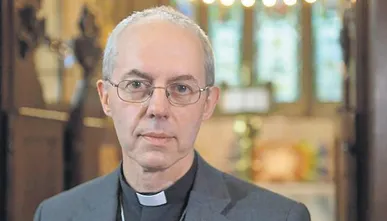
Global communion with colonial structure
Charles Raven
Date posted: 1 May 2018
In his insightful contribution for this column
last month, Chris Sugden showed that the
lack of accountability and anxiety about
brand protection revealed
in the Oxfam
scandal are also unresolved problems for
the Anglican Communion.
Both have a global reach and both have to
deal with imbalances of power and the need
for inclusive leadership.
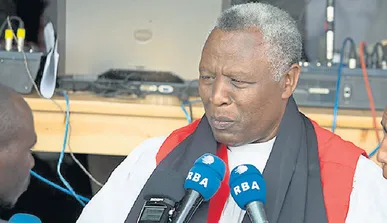
Rwanda: recovering the Great Commission
Charles Raven
Date posted: 1 Mar 2018
In January two new Anglican Primates were elected, the Bishop of Maridi, Justin Badi Arama, as Archbishop of South Sudan and the Bishop of Shyira, Dr Laurent Mbanda, as Archbishop of Rwanda.
Both nations have suffered internecine violence, and by far the most notorious example remains the Rwandan genocide of 1994 in which an estimated 1 million people died. Given the long history of insecurity which predated South Sudan’s recent independence, internal strife was predictable, but Rwanda was an established kingdom well before the colonial era, in which different ethnic groups lived peacefully. Moreover, Rwanda was the home of a powerful revival in 1929 which spread spontaneously during the 1930s and became known as the East African Revival.

Leadership and the Oxfam scandal?
Chris Sugden
Date posted: 1 Apr 2018
The scandal surrounding Oxfam staff in Haiti in 2011 has brought to light the need for the leadership in global organisations to address the imbalance of power between well-resourced institutions and desperate people struggling to survive in a disaster zone.
At the heart of the issue is accountability. The history of Christian mission, and of the Anglican Communion in particular, suggests that accountability must be rooted in the local situation. Anglican bishops around the world long since ceased to be accountable to any UK-based ecclesial body. They are leaders in their own ‘provinces’ and accountable to their own people. Powerful charities, which are the 21st-century equivalents of 19th-century missionary societies, could do well to develop similar models of local accountability, to address the issues and implications of the imbalance of power and its misuse.
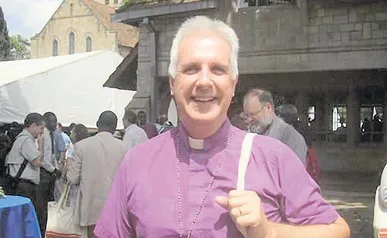
Canada: new confessing Anglicanism
Andrew Symes
Date posted: 1 Dec 2017
The Anglican Network in Canada (ANiC)
consists of over 70 congregations, which
over the past ten years have seceded from
the Anglican Church of Canada (ACoC), or
have begun as new plants.
The movement
began with
biblical-ly orthodox groups coming
together as
‘Anglican Essentials’ in the 1990s, to re-state
the basics of apostolic faith in a context of
increasing influence of secularist and liberal
thinking among the leadership of Anglican
and other mainline churches.
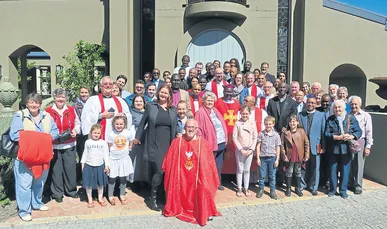
Just who is raising objections?
Chris Sugden
Date posted: 1 Oct 2017
Five bishops in the Anglican Church of Australia have asked their church lawyers whether bishops can take part in consecrating another bishop of a church which is not formally part of the Anglican Communion.
They raised objections to the consecration in May of the Rt Revd Andrew Lines of the Anglican Church in North America by the Archbishop of Sydney and bishops of Tasmania and Northwest Australia. These proceedings were set to dominate the meetings of the Church’s General Synod in September.

Alternative Synod?
Peter Sanlon
Date posted: 1 Aug 2017
One year ago the Daily Telegraph announced on its front page the new ‘Anglican Partnership Synod’.
Nicknamed a ‘shadow synod’, it marked a new form of partnership between Anglican churches in Kent and Sussex.
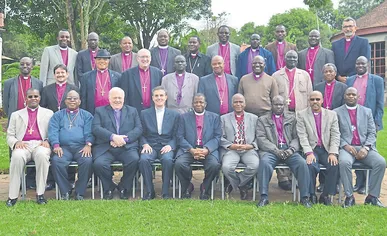
Bishops rebooted
Charles Raven
Date posted: 1 Jul 2017
Anglicans claim to be part of the Reformed Western catholic tradition and one of the most visible ways that continuity over the centuries is maintained is through episcopacy, which the English evangelical reformers of the 16th century quite deliberately retained in contrast to their continental counterparts.
Was that wise? In the present-day Anglican Provinces of the West, the claim to Reformed catholicity is looking ever more dubious as apostolic substance ebbs away. Moreover, disunity and doctrinal incoherence in the Anglican Communion has been an episcopally led phenomenon.
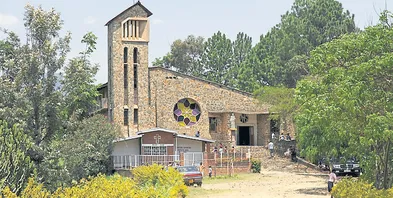
Rwanda: revival, genocide & recovery
Paul Perkin
Date posted: 1 Jun 2017
Rwanda is a land of contradictions. Arriving at Kigale one is immediately aware that this is quintessential Africa, and yet, ‘This is not Africa as I know it!’
One of the first hints is the airport inspection for plastic bags, banned in the country for environmental reasons. This beautiful, hilly, and in parts mountainous land is spotlessly clean – almost manicured.

Evangelical options

David Baker
Date posted: 1 Jul 2017
Let’s consider some possible futures for Anglican evangelicals concerned about the Church of England.
Option 1: Remain and resist
This is the strategy from Lee Gatiss of Church Society, Bishop Rod Thomas and many others. In this view, the battle is not lost. As I write, the next bishops’ report on marriage and sexuality is awaited. Southwell bishop Paul Williams – who spoke at a Proclamation Trust conference a few years ago – says: ‘Whatever some would like to claim, the Church of England is and remains faithful to the teaching of Scripture on these matters…’ The new document ‘will be deeply rooted in and faithful to Scripture,’ he claims.
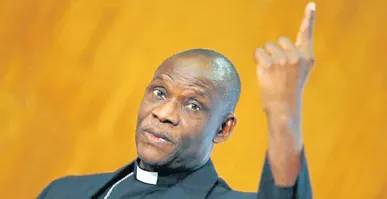
Looking outwards with the gospel
Chris Sugden
Date posted: 1 Apr 2017
In February, the Secretary General of the
Anglican
Communion,
a
Nigerian
Archbishop, Josiah Idowu-Fearon, addressed
the General Synod of the Church of England;
and Growth and Decline in the Anglican
Communion – 1980 to the Present, edited by
David Goodhew of Cranmer Hall, Durham,
was launched at a conference.
Archbishop Fearon clarified that the term
‘Anglican Communion’ referred to churches
which find their common roots through the
CofE and its tradition to the witness and mission of the apostolic church. ‘The very word
anglicana implies a living tradition of faith in
the gospel as this church has received it …
from Augustine of Canterbury … to renewal
in
the English Reformation and beyond.’
‘They feel they owe so much of their faith, in
human
terms,
to
the
faithful giving of
Christians in the CofE over the centuries.’

Mary Sumner’s leaky umbrella
Charles Raven
Date posted: 1 May 2017
The Mothers Union (MU) is one of the great success stories of the Anglican Communion.
Beginning in 1876 with Mary Sumner’s vision for Christian marriage and family life, the movement now numbers some 4 million members worldwide, with the largest concentration being in Africa.
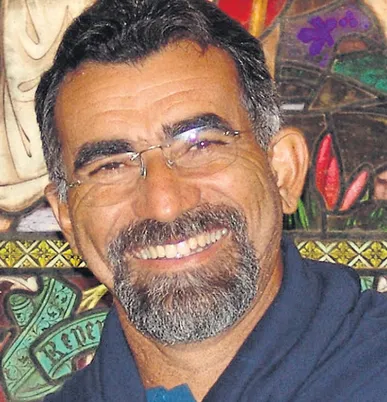
Anglican renewal in Brazil
Charles Raven
Date posted: 1 Mar 2017
Most Christians in the UK probably have
only the haziest idea of what Anglicanism
looks
like
in
South
America.
The
Edinburgh Missionary Conference of 1910
inhibited Protestant and Anglican missionary work in the continent, while the English
language has always been marginal, unlike
most
other
areas
of
the
Anglican
Communion where British influence was
much stronger.
This is a pity, because out of the continuing
crisis
in
the world-wide Anglican
Communion a reinvigorated and missionary
church is emerging in South America, in
spite of official persecution and rejection. In
fact the pattern of North America is being
repeated. Just as a new GAFCON-recognised
Province,
the Anglican Church
in North
America (ACNA), arose out of the aggressive
and assertive revisionism of the American
Episcopal Church (TEC) and the Anglican
Church of Canada, so in South America a
new orthodox Province is coming into being
as the Anglican Episcopal Church of Brazil
(IEAB) and various TEC satellite provinces
in central and northern South America
follow the
lead of their North American
counterparts.